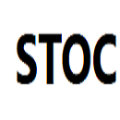We study the problem of designing worst-case to average-case reductions for quantum algorithms. For all linear problems, we provide an explicit and efficient transformation of quantum algorithms that are only correct on a small (even sub-constant) fraction of their inputs into ones that are correct on all inputs. This stands in contrast to the classical setting, where such results are only known for a small number of specific problems or restricted computational models. En route, we obtain a tight $\Omega(n^2)$ lower bound on the average-case quantum query complexity of the Matrix-Vector Multiplication problem. Our techniques strengthen and generalise the recently introduced additive combinatorics framework for classical worst-case to average-case reductions (STOC 2022) to the quantum setting. We rely on quantum singular value transformations to construct quantum algorithms for linear verification in superposition and learning Bogolyubov subspaces from noisy quantum oracles. We use these tools to prove a quantum local correction lemma, which lies at the heart of our reductions, based on a noise-robust probabilistic generalisation of Bogolyubov's lemma from additive combinatorics.
翻译:对于所有线性问题,我们提供明确而高效的量子算法转换方法,该算法仅正确于其输入的微小(甚至次调)分数,才正确于所有输入的正确部分。这与古典环境形成鲜明对照,古典环境只有少量具体问题或限制性计算模型才知道这些结果。在路线上,我们从母体-变量乘法问题的平均量子查询复杂度获得一个紧凑的单位$\Omega(n ⁇ 2)美元。我们的技术加强并概括了最近引入的典型最坏情况至平均减法的添加式组合法框架(STOC 2022)到量子设置。我们依靠量子单值转换来构建在超置中进行线性核查的量子算法,并从噪声量器中学习Bogolyubov 子空间。我们用这些工具来证明量子局部校正的精液,这是我们减量的核心,其基础是波里布洛夫列姆斯加里卡的振动剂。


